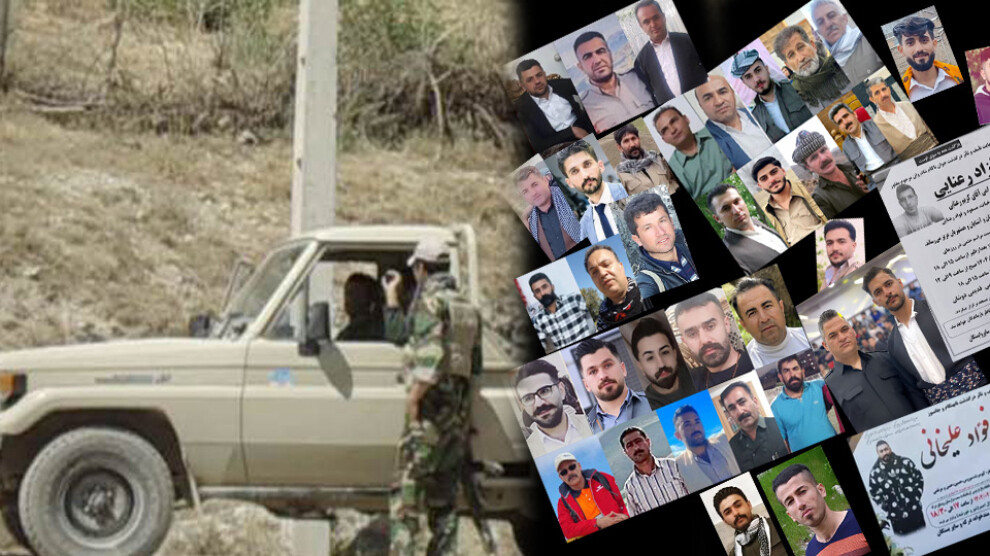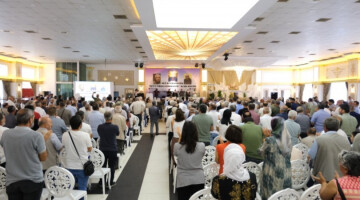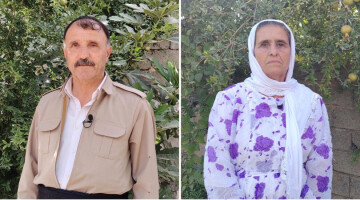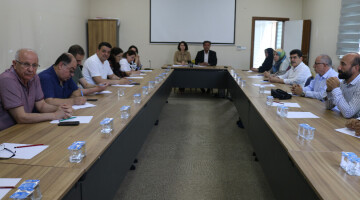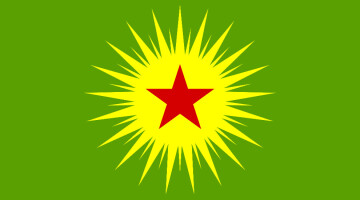The Kurdistan Human Rights Network (KHRN) reported that the Islamic Republic’s military and security presence has escalated across the region, with widespread arrests, summonses, interrogations, and threats targeting local residents.
Two civilians killed in Kermanshah and Sanandaj
Two Kurdish men – Foad Alikhani, 41, from Kermanshah, and Azad Ranaei, 34, from Sanandaj – have been killed by security forces.
Alikhani was arrested on 23 June at an Islamic Revolutionary Guards Corps (IRGC) checkpoint in Azadegan Square, Kermanshah, following an argument over the inspection of his mobile phone.
The next day, his family was informed of his death and security agencies prevented any public disclosure of his death by threatening his family and only handed over the body in exchange for a written commitment.
Some of his relatives said that he died under torture, although this has not been officially confirmed.
Azad Ranaei was shot dead by the police forces on the evening of 26 June in one of the streets of Sanandaj.
Secret execution of three Kurdish prisoners
On 25 June, three Kurdish prisoners – Edris Ali and Azad Shojaei (from Sardasht), and Rasoul Ahmad Rasoul (from Qaladiza, in the Kurdistan Region of Iraq) – were secretly executed in Orumiyeh Central Prison.
They had been sentenced to death on charges of “enmity against God” (moharebeh) and “spreading corruption on Earth” (efsad-e fel-arz) through alleged “espionage for Israel”.
The three men were executed in secret, without being allowed final visits with their families.
The authorities did not return the bodies and have forbidden and threatened the families against holding mourning ceremonies.
Over 250 Kurdish civilians arrested; dozens more summoned and interrogated
Since the outbreak of the war on 14 June, the Islamic Republic’s security forces – particularly the Intelligence Organisation of the IRGC and the Ministry of Intelligence – have launched a widespread crackdown across cities and villages in Kurdistan.
The Kurdistan Human Rights Network (KHRN) has learned that more than 250 Kurdish civilians have been arrested, with dozens of others summoned and interrogated.
In just one example, Hamidreza Karimi, the Public and Revolutionary Prosecutor of Kermanshah, announced on 24 June that 115 individuals had been detained by judicial officers, of whom 54 were released on bail and 61 remain in custody.
Due to ongoing security pressure and threats against families, there is little reliable information available about the fate of many detainees.
According to several lawyers in various cities across Kurdistan, the actual number of arrests far exceeds the official figures and likely reaches into the hundreds.
These lawyers noted that families, many of whom refrain from speaking out for fear of reprisals, are gathering daily outside courthouses and security offices demanding answers about their loved ones. In most cases, officials respond with silence or conflicting and vague answers.
Concerns over detainees: Risk of severe charges and forced confessions
Despite the passage of several days since the mass arrests, no official charges have been disclosed for many of the detainees. However, available information suggests that some of them are facing charges such as “espionage for Israel”, “propaganda against the state”, “insulting sanctities”, “action against national security”, and “possession or sale of internet communication devices such as Starlink”.
The KHRN expressed serious concern about the condition of detainees, warning that in response to the killing of IRGC commanders during recent Israeli attacks and the newly passed law on espionage-related offences in Iran’s parliament, there is an increased risk of violence against prisoners.
"We fear that security forces, acting on a policy of retaliation, may subject detainees to physical and psychological torture to coerce forced confessions – a practice with a well-documented history in similar cases, often preceding severe sentences or extrajudicial executions," the KHRN stated.
Tightened security in prisons and transfers of political prisoners
According to reports, six Kurdish political prisoners – Verisheh Moradi (Wirishe Moradi), Pakhshan Azizi, Sakineh Parvaneh, Foad Fathi, Motalleb Ahmadian, and Morteza Seydi – along with other inmates, were transferred from Evin Prison to Qarchak and Tehran prisons following the bombing of Evin.
Reports indicate poor detention conditions, and it is said that Morteza Seydi was injured during the bombing due to shattered glass in his ward.
KHRN has also learned that in the first week of the war, judicial authorities in Kurdistan Province informed families of prisoners with sentences longer than 10 years that their relatives would soon be transferred to other prisons.
Meanwhile, the prisons of Orumiyeh, Sanandaj, and Kermanshah remain under tight security. Special Forces have been deployed to these prisons, and prisoners’ protests have been met with reppression.
IRGC members arrested for allegedly spying for Israel
A source in Orumiyeh has informed KHRN that at least 50 members of the Basij and IRGC in West Azerbaijan province have been arrested by the IRGC’s Intelligence Protection Unit.
They are reportedly being held and interrogated in the Al-Mahdi military base detention centre in Orumiyeh on accusations of “espionage for Israel”.
Widespread checkpoints and mobile phone searches
Eyewitnesses have reported the continuation of extensive checkpoints and mobile phone inspections at the entry and exit points of cities including Kermanshah, Kamyaran, Sanandaj, Marivan, Saqqez, Bukan, Mahabad, Sardasht, Piranshahr, and Orumiyeh.
These measures have created a heavily militarised and intimidating atmosphere in the region’s urban areas.

